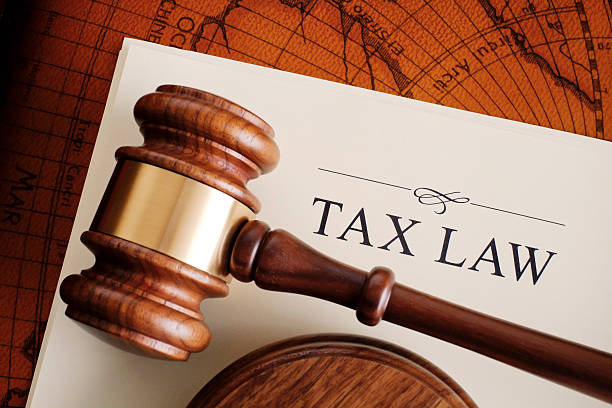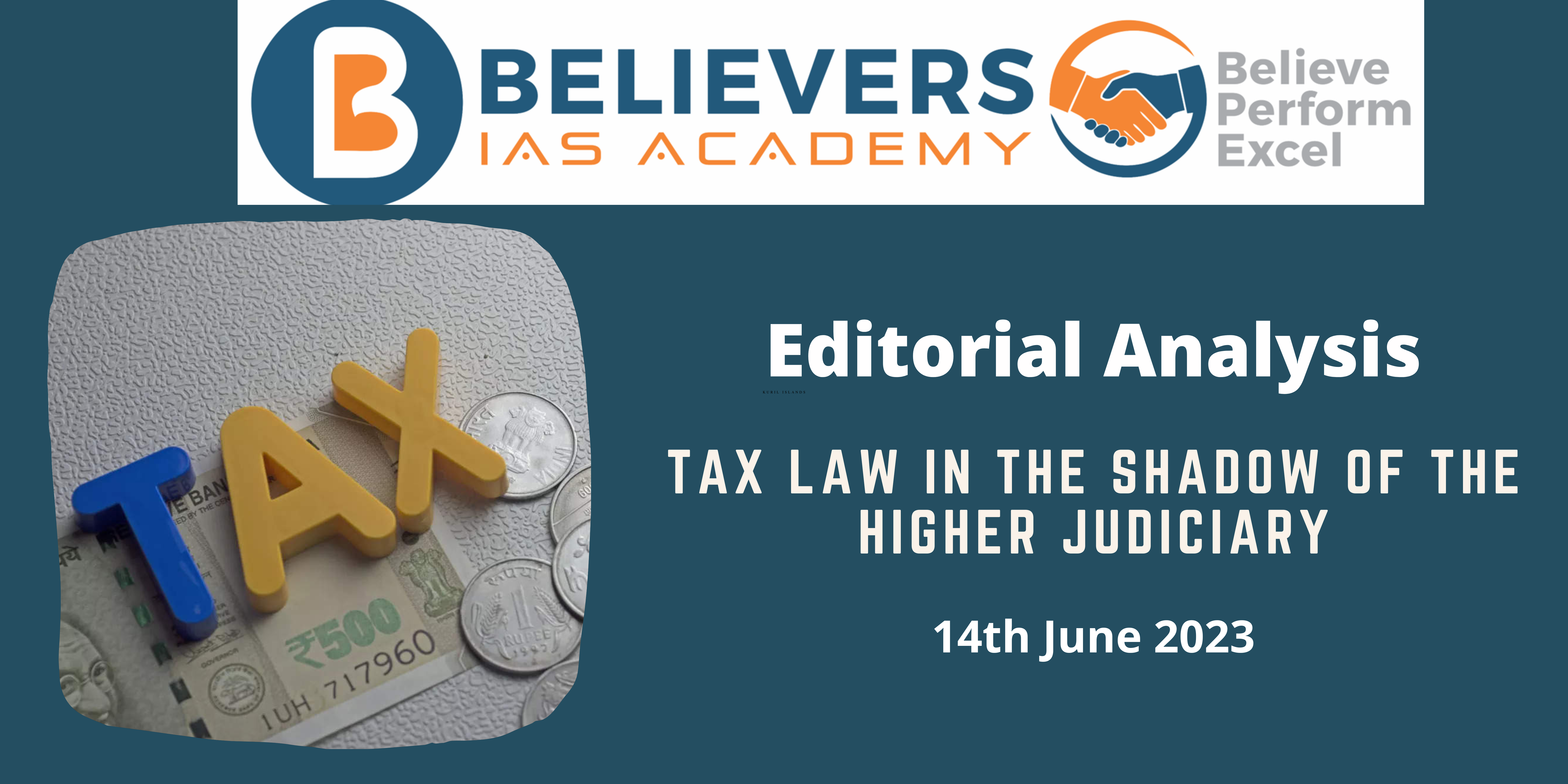Tax Law In The Shadow Of The Higher Judiciary
Context :
Indian tax law is based on two fundamental principles. Let’s start with the premise that a tax can only be imposed with legal authorization, as stated in Article 265 of the Constitution. Second, any levy should be transparent, consistent, and predictable by the principle of certainty. Both of these principles spring from a broader dedication to the rule of law, particularly to ideals of legitimacy and certainty.
Article 265

- Power of Law: Article 265 specifies that only legal power may be used to impose or collect taxes. This means that legislation passed by the Parliament or state legislatures is required to authorise taxes.
- Protection Against Arbitrary Taxation: Article 265’s clause protects citizens from being subjected to arbitrary or exorbitant taxes. It stops the government from levying levies devoid of justification.
- Fair and Accountable Taxation: Article 265 aims to ensure that the Indian tax system functions in a just, open, and accountable way. It encourages the ideas of equality and accountability in the taxing process by requiring levies to be authorised by law.
- Direct taxes: Direct taxes are imposed on people or organisations according to their income, wealth, or property. Income tax, wealth tax, and property tax are a few examples of direct taxes. According to Article 265 of the Constitution, these taxes must be levied with legal sanction.
- Indirect taxes: Indirect taxes are levied on both commodities and services. The consumer normally bears the cost of these taxes. GST (goods and services tax), customs fees, and excise fees are a few examples of indirect taxes. Furthermore, as required by Article 265 of the Constitution, these taxes must be levied with legal sanction.
- Tangkhul v. Simirei Shailei Case: The Tangkhul v. Simirei Shailei Case involves villages paying a fixed sum to the headman instead of the customary practise of providing free labour. The court determined that because this payment lacked legal authorization, it violated Article 265 and was equivalent to tax collection.
- Lord Krishna Sugar Mills: In the Lord Krishna Sugar Mills v. UOI case, the government instituted a promotion system that subjected sugar merchants who fell short of specific export targets to an additional excise fee. The court emphasised the need for tax imposition through parliamentary permission when it determined that the administration lacked the legal capacity to levy this additional excise tax.
- fiscal system: Article 265 is a cornerstone of India’s fiscal system, which is why it is important. To ensure that the tax system runs within the bounds of the law, it provides the constitutional framework for the levying and collection of taxes.
- Citizens are protected from unauthorised or illegal tax collection by Article 265’s provision. It makes sure that only legal means are used to impose taxes, protecting the rights and interests of taxpayers.
Points to Ponder:
- Principle of Taxation: Two key tenets of Indian tax law are highlighted in the passage under the heading “Indian Taxation Principles.” First, according to Article 265 of the Constitution, taxes can only be levied under the authority of the legislation. To uphold the rule of law and ideals of legality and predictability, taxes should be transparent, uniform, and predictable.
- Reversal of Well-Reasoned Judgements: The section highlights worries about the Supreme Court of India overturning High Court decisions that were well-reasoned, which calls into question the adherence to the aforementioned criteria. It explicitly cites two decisions by Justice M.R. Shah as noteworthy examples.
- ITO vs. Vikram Sujitkumar Bhatia Case: This case centres on how Section 153C of the Income Tax Act should be interpreted. The clause addresses the circumstances under which actions for search warrants against third parties may be taken. In the past, several High Courts had a strict interpretation of the clause, insisting that the material taken genuinely “belongs” to the third party. The Supreme Court overturned this view, permitting retroactive application of the modified statute to searches made before the change.
- Union of India v. Ashish Agarwal Case: In this case, the Revenue sent reassessment notices without the necessary legal authorization. The Court reinstated these notices, which High Courts had ruled were illegal because tax agents behaved honestly and were not aware of the legal change. The Court reinstated these notices despite the absence of parliamentary support by using its authority under Article 142 of the Constitution, which permits it to issue orders for “complete justice.”
- Breach of Statutory Law and Article 142: It is argued that the Court’s use of Article 142, which gives it the authority to issue orders for “complete justice,” may violate the law. Concerns have been raised concerning the Court’s use of this power after it revived activities without legislative authorization and overturned judgements that were not even on appeal to it.
- Illusory Promise of Taxation without Legislation: The passage ends by stating that if the Supreme Court keeps playing the role of the legislature, the promise of taxation without legislation, as protected by Article 265 of the Constitution, will remain illusory, undermining the concepts of legality and certainty in taxation.




